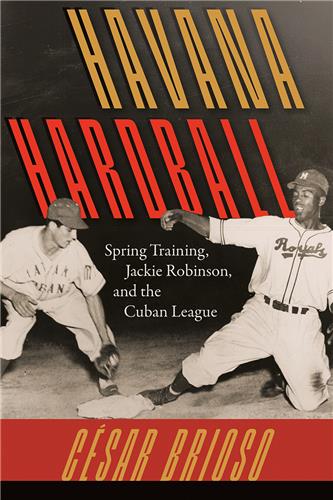Bridging Race Divides
Black Nationalism, Feminism, and Integration in the United States, 1896-1935
Kate Dossett
Paper: $29.95
"Bridging Race Divides breaks new ground in African American and women's history by challenging assumptions about African American women's relationship to black nationalist movements in the United States"--Sarah Judson, University of North Carolina, Asheville
High-profile rivalries between black male leaders in the early twentieth century have contributed to the view that integrationism and black nationalism were diametrically opposed philosophies shaped primarily by men. Bridging Race Divides challenges this conceptualization by examining prominent "race women" (including Amy Jacques Garvey, Mary McLeod Bethune, Madame C. J. Walker) as well as other participants in the Harlem Renaissance, Garveyism and the clubwomen's movement to reveal the depth and complexity of women's contributions to both black feminist and black nationalist traditions of activism in the early twentieth century.
Ideas of authenticity and respectability were central to the construction of black identities within black cultural and political resistance movements of the early twentieth century. Unfortunately both concepts have also been used to demonize black middle-class women whose endeavors towards racial uplift are too frequently dismissed as assimilationist and whose class status has apparently disqualified them from performing "authentic" blackness and exhibiting race pride.
Kate Dossett challenges these conceptualizations in a thorough examination of prominent black women leaders' political thought and cultural production in the years between the founding of the National Association of Colored Women in 1896 and the National Council of Negro Women in 1935. Through an analysis of black women's political activism, entrepreneurship and literary endeavor, Dossett argues that black women made significant contributions toward the development of a black feminist tradition which enabled them to challenge the apparent dichotomy between black nationalism and integrationism.
By exploring the connections between women like the pioneering black hairdresser Madam C. J. Walker and her daughter, A'Lelia, as well as clubwoman Mary McLeod Bethune and United Negro Improvement Association activist Amy Jacques Garvey, Dossett also makes a distinctive contribution to the field of women's history by positioning black women at the forefront of both intellectual and practical endeavors in the struggle for black autonomy.
Kate Dossett is a lecturer in North American history at the University of Leeds. She has presented her research on black women's activism at the Rothermere Institute at Oxford University and at a number of prominent conferences, including the British Association of American Studies, the Women and Work Conference at City University of New York, and the Black History Workshop at the University of Houston.
High-profile rivalries between black male leaders in the early twentieth century have contributed to the view that integrationism and black nationalism were diametrically opposed philosophies shaped primarily by men. Bridging Race Divides challenges this conceptualization by examining prominent "race women" (including Amy Jacques Garvey, Mary McLeod Bethune, Madame C. J. Walker) as well as other participants in the Harlem Renaissance, Garveyism and the clubwomen's movement to reveal the depth and complexity of women's contributions to both black feminist and black nationalist traditions of activism in the early twentieth century.
Ideas of authenticity and respectability were central to the construction of black identities within black cultural and political resistance movements of the early twentieth century. Unfortunately both concepts have also been used to demonize black middle-class women whose endeavors towards racial uplift are too frequently dismissed as assimilationist and whose class status has apparently disqualified them from performing "authentic" blackness and exhibiting race pride.
Kate Dossett challenges these conceptualizations in a thorough examination of prominent black women leaders' political thought and cultural production in the years between the founding of the National Association of Colored Women in 1896 and the National Council of Negro Women in 1935. Through an analysis of black women's political activism, entrepreneurship and literary endeavor, Dossett argues that black women made significant contributions toward the development of a black feminist tradition which enabled them to challenge the apparent dichotomy between black nationalism and integrationism.
By exploring the connections between women like the pioneering black hairdresser Madam C. J. Walker and her daughter, A'Lelia, as well as clubwoman Mary McLeod Bethune and United Negro Improvement Association activist Amy Jacques Garvey, Dossett also makes a distinctive contribution to the field of women's history by positioning black women at the forefront of both intellectual and practical endeavors in the struggle for black autonomy.
Kate Dossett is a lecturer in North American history at the University of Leeds. She has presented her research on black women's activism at the Rothermere Institute at Oxford University and at a number of prominent conferences, including the British Association of American Studies, the Women and Work Conference at City University of New York, and the Black History Workshop at the University of Houston.
No Sample Chapter Available
"Highly recommended."
--Choice
"Ultimately, this volume contributes to ongoing conversations about what role black women have played in institutionalized black politics--integrationist or nationalist--as they are often excluded because of race, gender, or class. Bridging Race Divides adds complexity to our conversations and the growing literature on African American women's political strategizing."
--The Journal of American History
"Dossett's work adds, in an important way, to African American women's history by connecting individuals' efforts to the larger discussion of African American strategies for progress."
--The Journal of Southern History












